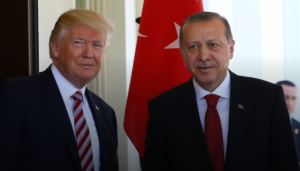
Turkish President Recep Tayyip Erdogan has said that US President Donald Trump has expressed his readiness to come to Turkey to work on peace with Ukraine if Putin comes, TRT Global reports.
“The Turkish president revealed details of his conversation with US leader Donald Trump, saying that he is ready to come to participate in peace talks. “If Russian President Vladimir Putin comes to Istanbul or Ankara for a settlement, I will also come to Istanbul or Ankara,” Erdogan quoted Trump as saying to reporters on board the plane after returning from the Netherlands.
The Turkish leader emphasized his country’s readiness to take decisive steps for a peaceful settlement: “If we need to dig a well with a needle to find a solution, we will do it.”
Erdogan spoke about his meeting with Ukrainian President Volodymyr Zelenskyy at a dinner with the King of the Netherlands on June 24, where the support of Ukraine’s allies and the outcome of the war were the main topics of discussion.
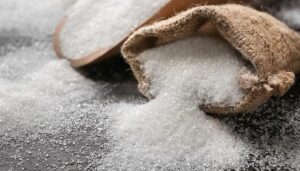
Ukraine has already exported 494,000 tons of sugar in the 2024-2025 marketing year, of which 196,600 tons were exported in January-April 2025, according to the press service of the National Association of Sugar Producers of Ukraine “Ukrtsukor” on Facebook.
According to the report, 90% was destined for the global market, with 10% exported to EU countries.
According to the industry association, Turkey remains the leading buyer of Ukrainian sugar, accounting for 16% of export volumes, followed by Libya (11%) and EU countries (10%).
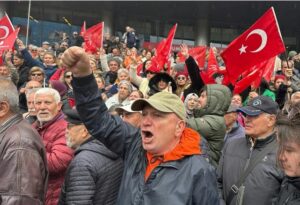
Mass protests continue in Turkey after the detention of Istanbul Mayor Ekrem Imamoglu, one of the main political opponents of President Recep Tayyip Erdogan; on Friday alone, 343 demonstrators were detained in nine cities, including Ankara and Istanbul, Radio Liberty reports, citing the Turkish Ministry of Interior.
Interior Minister Ali Erlikaya accused the demonstrators of trying to “disrupt public order and provoke chaos.” In addition to the protesters, 56 other people were detained separately for allegedly inciting unrest through social media.
Imamoglu was detained in the morning of March 19. He and about 100 other people were accused of corruption crimes and the creation of a criminal group that was engaged in extortion from businesses.
Imamoglu, whom the Republican People’s Party (CHP) is preparing to nominate as a presidential candidate, called the case politically motivated. On social media, he said the investigation was a “political coup” and called on citizens to fight back.
The Turkish Ministry of Justice claims that the case has no political basis.
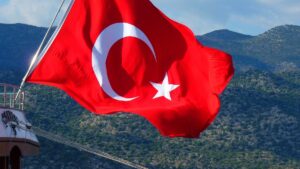
President of Ukraine Volodymyr Zelenskyy says that he is counting on Turkey, in particular, for security guarantees, taking into account its possible military contingent, as he informed his European partners.
“If we are talking about security guarantees, I told my partners: in my opinion, we have to count on Turkey, on the Turkish president. Why? Because it is very important who will be ready to give real numbers of the contingent – real people, military vessels,” Zelensky said at a press conference on Sunday.
He added: “With all due respect to everyone… we will have to think about certain logistical steps to understand who will be sitting at the negotiating table.”
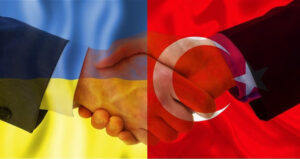
Ukraine is ready to expand cooperation in the livestock market with Turkey, Minister of Agrarian Policy and Food Vitaliy Koval said following talks with Turkish Trade Minister Omer Bolat.
The minister noted that the meeting in Istanbul was attended by about 50 Turkish companies, including the largest agricultural producers of feed, meat products, food products, and food warehouses.
“I told them about the priorities of the Ministry of Agrarian Policy: the development of livestock and deep processing. I invited Turkish business to invest in the construction of processing plants in Ukraine. I am sure that their agro-processing companies can find new high-quality markets for their business in Ukraine. This will be beneficial for both countries,” Koval emphasized.
According to him, cooperation between Ukraine and Turkey is at a good level. Turkey is Ukraine’s fourth largest trade partner. The trade turnover of agricultural products between Ukraine and Turkey amounted to $2.2 billion in 2024. Ukraine exported $1.6 billion worth of products to Turkey. Among the most popular are traditional Ukrainian agricultural crops: corn, sunflower oil, soybeans, sugar, and more.
The Minister of Agrarian Policy assured that Ukraine and Turkey will continue to develop cooperation, not only at the level of governments but also business associations.
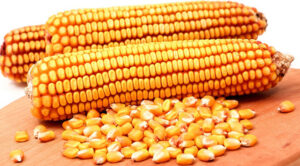
In November 2024, Turkey overtook Spain, the unchallenged leader, in imports of Ukrainian corn, Dmytro Solomchuk, MP, member of the Committee on Agrarian and Land Policy, said on Facebook.
“In terms of physical weight, the figures are significant – 2.5 million tons of exports in November, of which 620 thousand tons were bought by Turkey,” he wrote.
The MP noted that in November, a total of $2.3 billion worth of agricultural products were exported, of which only $512 million was corn.
As reported, on October 10, 2024, Turkey introduced quotas on imports of 1 million tons of corn and reduced the duty to 5% by the end of December 2024.